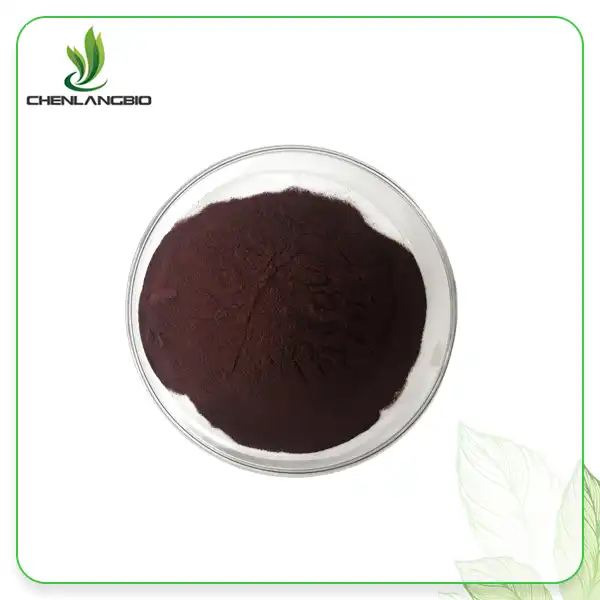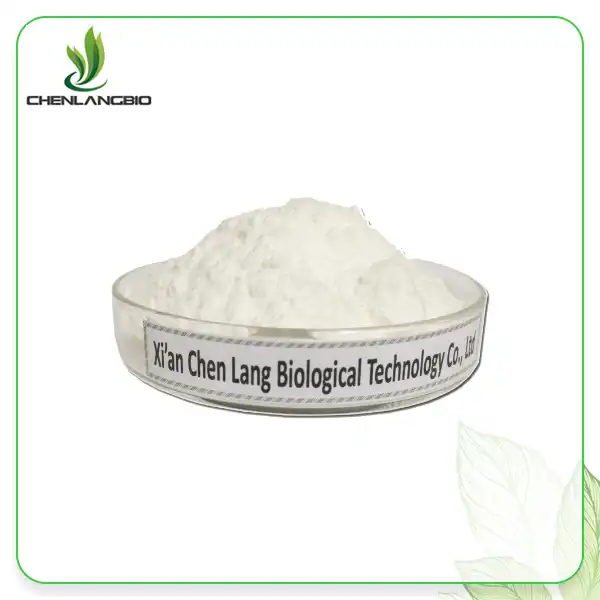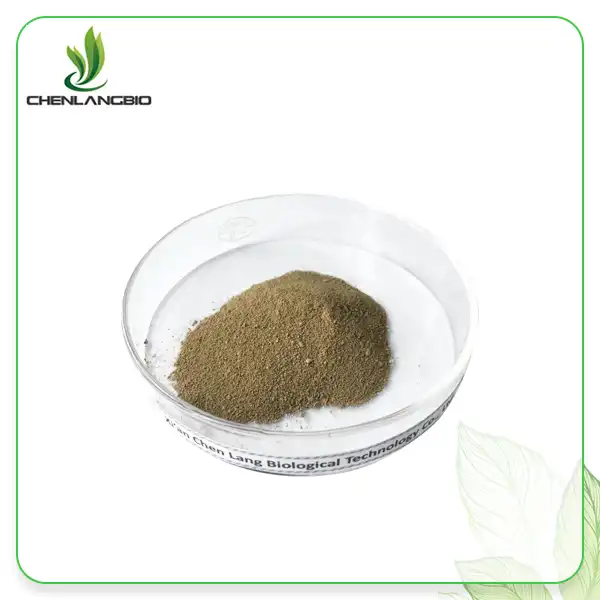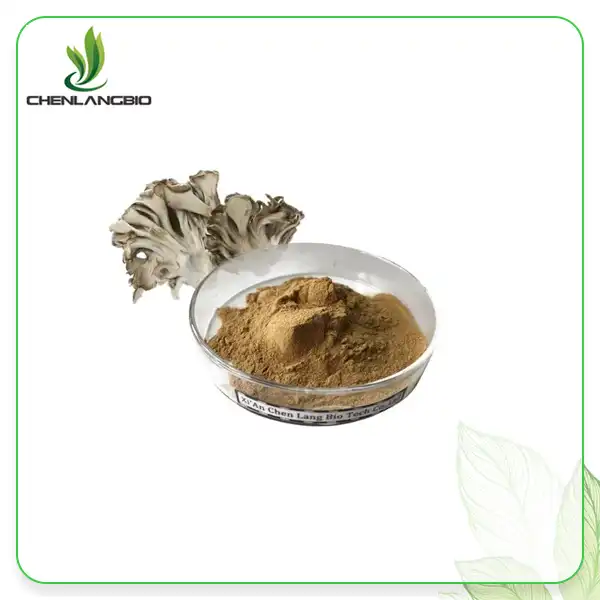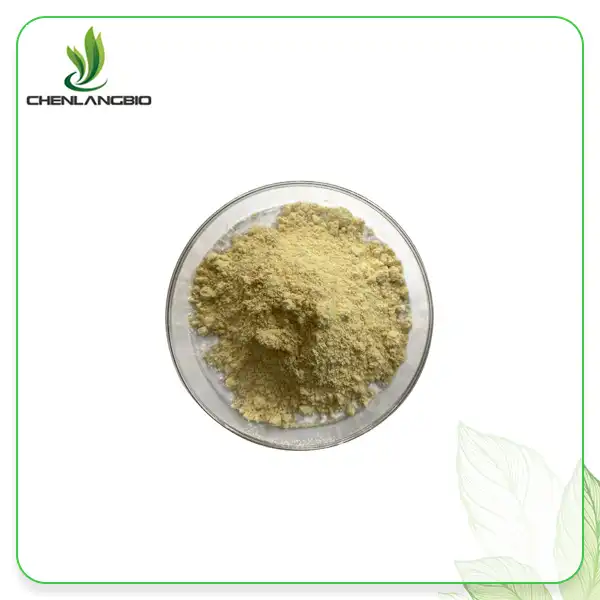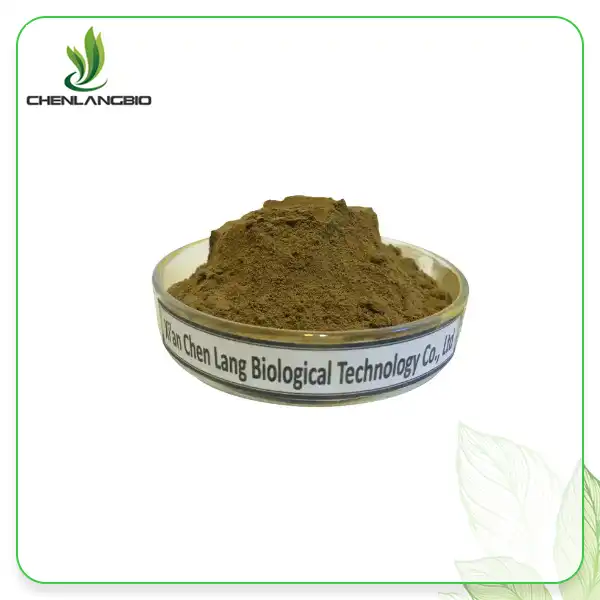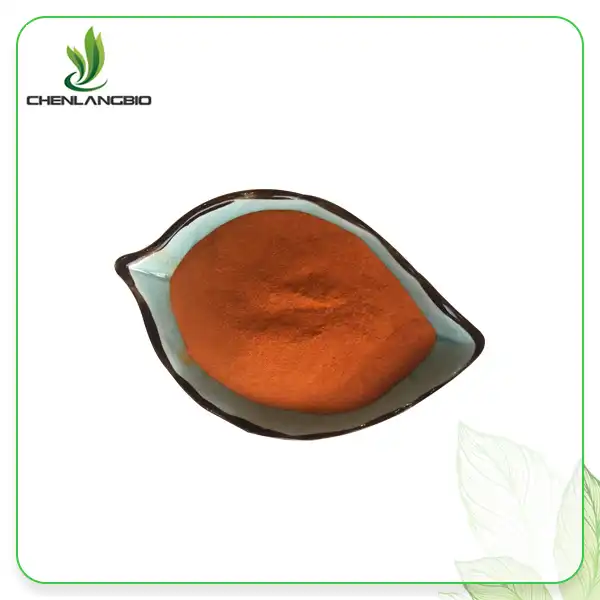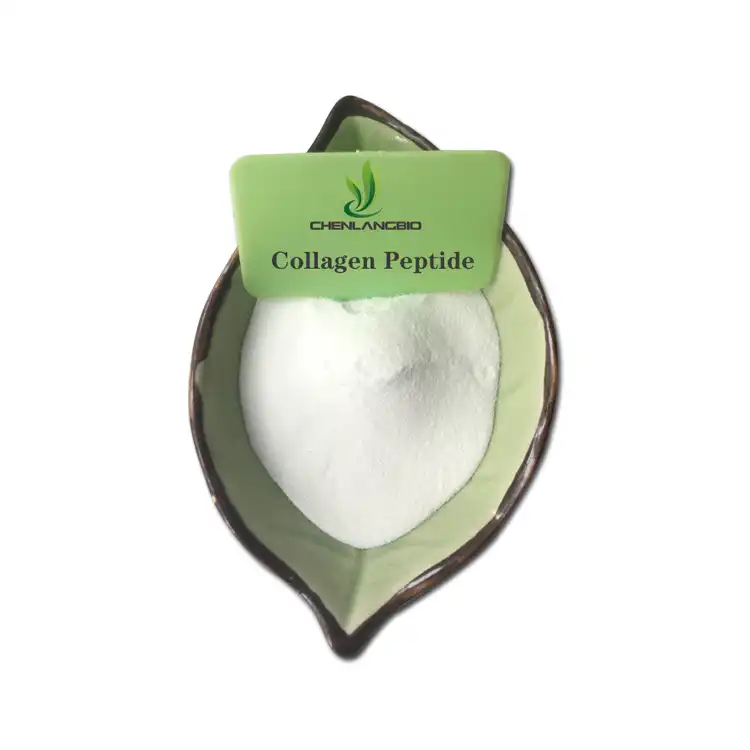What is the Difference Between Regular Coenzyme Q10 and Liposomal Coenzyme Q10?
2025-07-15 12:28:43
The key difference between regular Coenzyme Q10 and liposomal coenzyme Q10 lies in their delivery systems and bioavailability. Regular CoQ10 is typically absorbed at a rate of only 3-5% due to its poor water solubility, while Liposomal Coenzyme Q10 encapsulates the CoQ10 molecules within phospholipid bilayers, creating liposomes that mimic human cell membranes. This innovative delivery system significantly enhances absorption rates by up to 8-10 times, allowing CoQ10 to bypass digestive barriers and deliver higher concentrations to target tissues where it's needed most for energy production and antioxidant protection.
Understanding Coenzyme Q10 Delivery Systems: Regular vs. Liposomal
The Molecular Structure Challenge of Regular CoQ10
Regular Coenzyme Q10, also called ubiquinone, presents significant absorption challenges due to its molecular structure. As a fat-soluble antioxidant, CoQ10 has poor water solubility, making it difficult for the body to efficiently absorb and utilize it when taken in conventional supplement form. The molecular weight and hydrophobic nature of regular CoQ10 create barriers to dissolution in the gastrointestinal fluids, resulting in limited bioavailability. When consumed in standard capsule or powder form, regular CoQ10 must first be broken down by digestive enzymes and then solubilized by bile salts before it can be absorbed through the intestinal lining. This complex process leads to significant loss of active compounds, with studies suggesting that conventional CoQ10 formulations may have absorption rates as low as 3-5%. For individuals seeking the heart-protective, energy-enhancing, and antioxidant benefits of this vital nutrient, this inefficiency presents a considerable drawback, as higher doses are required to achieve therapeutic effects, increasing both cost and potential for digestive discomfort in sensitive individuals.

Liposomal Technology: Revolutionizing CoQ10 Delivery
Liposomal Coenzyme Q10 represents a significant advancement in supplement technology that addresses the bioavailability limitations of regular CoQ10 formulations. Liposomes are microscopic spherical vesicles consisting of phospholipid bilayers that closely resemble the structure of human cell membranes. In liposomal coenzyme Q10, these specialized lipid carriers encapsulate CoQ10 molecules within their core, creating a protective barrier that shields the nutrient from harsh digestive enzymes and facilitates more efficient transport through the digestive system. The phospholipid composition of liposomes, particularly those made with phosphatidylcholine, allows for enhanced cell affinity and improved fusion with cell membranes. This revolutionary delivery system enables Liposomal Coenzyme Q10 to bypass many of the traditional absorption barriers that limit regular CoQ10 effectiveness. When the liposomes reach the small intestine, they can be directly absorbed into the lymphatic system, bypassing first-pass liver metabolism and delivering significantly higher amounts of active CoQ10 to the bloodstream and target tissues where this essential nutrient is most needed for cellular energy production and antioxidant protection.
Bioavailability Comparison: The Liposomal Advantage
The bioavailability difference between regular and Liposomal Coenzyme Q10 is substantial and clinically significant. Clinical studies comparing traditional CoQ10 supplements with Liposomal Coenzyme Q10 formulations have demonstrated dramatic improvements in absorption rates and blood plasma concentrations. Research indicates that liposomal delivery systems can enhance CoQ10 bioavailability by up to 8-10 times compared to regular formulations, achieving therapeutic blood levels with significantly lower doses. This enhanced absorption is particularly beneficial for individuals with compromised digestive function, the elderly, or those with conditions that affect nutrient absorption. The liposomal delivery system also provides more consistent blood levels of CoQ10 over time, avoiding the peaks and valleys often observed with conventional supplements. This steady-state delivery optimizes cellular uptake and utilization of CoQ10, maximizing its beneficial effects on mitochondrial function and energy production. For conditions where optimal CoQ10 levels are critical, such as cardiovascular disease, migraine prevention, or statin-induced myopathy, the superior bioavailability of Liposomal Coenzyme Q10 can make a meaningful difference in clinical outcomes and quality of life improvements.
Health Benefits and Applications of Different CoQ10 Formulations
Cardiovascular Support: Enhanced Efficacy with Liposomal CoQ10
Coenzyme Q10 is renowned for its cardiovascular benefits, but the enhanced bioavailability of Liposomal Coenzyme Q10 takes heart health support to the next level. The heart contains the highest concentration of CoQ10 in the body due to its intense energy demands, and maintaining optimal levels is critical for cardiac function. Regular CoQ10 supplements have shown benefits for cardiovascular health, but their limited absorption can reduce therapeutic efficacy. Liposomal Coenzyme Q10, with its superior delivery mechanism, ensures that a higher percentage of this vital nutrient reaches cardiac tissues where it's most needed. Research has demonstrated that Liposomal Coenzyme Q10 supplementation can significantly improve parameters of heart function, including ejection fraction, stroke volume, and cardiac output in patients with heart failure. The enhanced bioavailability also means that therapeutic effects can be achieved with lower doses, reducing the pill burden for patients already taking multiple medications. Additionally, the antioxidant properties of Liposomal Coenzyme Q10 help protect the heart from oxidative damage, supporting the integrity of blood vessel walls and potentially helping to manage blood pressure levels. For individuals with cardiovascular concerns or those taking statin medications that deplete CoQ10 levels, the superior absorption of liposomal formulations offers a more effective approach to maintaining heart health.
Energy Production and Athletic Performance Enhancements
Coenzyme Q10 plays a crucial role in cellular energy production, serving as an essential component in the electron transport chain within mitochondria—the powerhouses of our cells. While regular CoQ10 can boost energy levels, liposomal coenzyme Q10 delivers this vital nutrient more efficiently to muscles and tissues, maximizing its energizing potential. Athletic performance studies have shown that Liposomal Coenzyme Q10 supplementation can lead to measurable improvements in exercise capacity, reduced fatigue, and faster recovery times compared to conventional CoQ10 formulations. The superior bioavailability ensures that muscles receive optimal CoQ10 concentrations during physical exertion, potentially increasing ATP production and reducing exercise-induced oxidative stress. This is particularly beneficial for high-intensity training where energy demands and free radical production are elevated. For endurance athletes, the enhanced delivery of Liposomal Coenzyme Q10 may improve oxygen utilization and delay the onset of muscular fatigue. Additionally, the improved cellular energy production extends beyond athletic performance, potentially benefiting individuals with chronic fatigue syndrome, fibromyalgia, or age-related energy decline. The consistent energy support provided by Liposomal Coenzyme Q10 makes it an excellent choice for anyone seeking to enhance their physical performance, stamina, and overall vitality without the need for stimulants or compounds that could negatively impact cardiovascular health.
Anti-Aging and Skin Health Applications
The antioxidant properties of CoQ10 make it a powerful ally in combating the visible signs of aging, but the limited absorption of regular formulations has historically restricted its effectiveness in topical and internal anti-aging applications. Liposomal Coenzyme Q10 represents a significant advancement in this area, with its enhanced bioavailability ensuring that more active CoQ10 reaches skin cells and other tissues affected by aging processes. When consumed orally, Liposomal Coenzyme Q10 can help combat oxidative stress throughout the body, potentially slowing cellular aging from the inside out. Research indicates that adequate CoQ10 levels help maintain mitochondrial function as we age, supporting cellular energy production that naturally declines over time. In dermatological applications, Liposomal Coenzyme Q10 has shown superior penetration through the skin's outer layers, delivering this potent antioxidant directly to dermal fibroblasts where it can protect against UV damage, support collagen production, and reduce the appearance of fine lines and wrinkles. The phospholipid components of the liposomal delivery system provide additional skin benefits, supporting membrane integrity and hydration. For comprehensive anti-aging protocols, combining topical Liposomal Coenzyme Q10 products with oral supplementation provides a dual-action approach that addresses both internal and external factors contributing to the aging process, potentially yielding more visible and sustainable results than possible with regular CoQ10 formulations.
Clinical Applications and Specific Health Concerns
Neurological Health: Brain Bioavailability Considerations
The brain's high energy demands and susceptibility to oxidative stress make Coenzyme Q10 a compound of significant interest in neurological health. However, the blood-brain barrier presents an additional challenge for nutrient delivery to neural tissues, further limiting the already poor bioavailability of regular CoQ10 formulations. Liposomal Coenzyme Q10 offers a promising solution to this challenge, as the phospholipid structure of liposomes may facilitate enhanced transport across the blood-brain barrier, delivering higher concentrations of this neuroprotective nutrient to brain cells. Research suggests that maintaining optimal CoQ10 levels in the brain may support mitochondrial function and protect against neurodegenerative processes. Several clinical studies have investigated the potential benefits of enhanced CoQ10 delivery in conditions such as Parkinson's disease, Alzheimer's disease, and migraines, with preliminary findings suggesting that improved bioavailability could enhance therapeutic outcomes. The superior absorption of Liposomal Coenzyme Q10 ensures that even with lower doses, more active compound reaches neural tissues where it can support ATP production, reduce oxidative damage, and potentially maintain neuron integrity. For individuals concerned about cognitive health, age-related cognitive decline, or specific neurological conditions, the enhanced brain bioavailability offered by liposomal delivery represents a significant advantage over regular CoQ10 supplements, potentially providing more consistent and pronounced neuroprotective effects.
Metabolic Syndrome and Diabetes Management Potential
Metabolic disorders characterized by insulin resistance, dyslipidemia, and chronic inflammation represent growing health concerns where Coenzyme Q10 supplementation shows therapeutic potential. However, these conditions often involve impaired nutrient absorption, making the enhanced bioavailability of liposomal coenzyme Q10 particularly valuable. Research indicates that adequate CoQ10 levels may support insulin sensitivity, glucose metabolism, and mitochondrial function—all crucial factors in metabolic health. The superior absorption of Liposomal Coenzyme Q10 ensures that therapeutic concentrations reach target tissues even in individuals with compromised digestive function or metabolic imbalances. Studies have shown that enhanced CoQ10 delivery may help reduce markers of oxidative stress and inflammation associated with metabolic syndrome and diabetes. Additionally, the improved cellular energy production facilitated by optimal CoQ10 levels may support pancreatic beta-cell function and enhance muscular glucose utilization, potentially contributing to better glycemic control. For individuals taking medications that may deplete CoQ10 levels, such as certain antidiabetic drugs or statins, Liposomal Coenzyme Q10 offers a more efficient way to maintain optimal status of this vital nutrient. The consistent delivery and enhanced cellular uptake provided by liposomal formulations may also contribute to more stable energy levels throughout the day, helping to moderate appetite and support metabolic balance in individuals struggling with blood sugar fluctuations or insulin resistance.
Optimal Dosing Strategies: Adjusting for Enhanced Absorption
The dramatic difference in bioavailability between regular and Liposomal Coenzyme Q10 necessitates a reconsideration of traditional dosing guidelines. With standard CoQ10 supplements, doses typically range from 100-300mg daily to achieve therapeutic effects due to poor absorption rates. However, the enhanced bioavailability of Liposomal Coenzyme Q10—up to 8-10 times greater than regular formulations—means that lower doses can achieve equivalent or superior blood levels and clinical outcomes. This improved efficiency translates to potential cost savings and reduced pill burden for consumers. When transitioning from regular to Liposomal Coenzyme Q10, practitioners often recommend starting with approximately one-third to one-half of the previous dose and monitoring clinical response. For maintenance of general health and antioxidant support, doses as low as 30-50mg of Liposomal Coenzyme Q10 may provide benefits equivalent to 200-300mg of regular CoQ10. For specific therapeutic applications such as cardiovascular support, migraine prevention, or neurodegenerative conditions, individualized dosing based on clinical presentation and response is recommended. The enhanced absorption profile of Liposomal Coenzyme Q10 also results in more consistent blood levels throughout the day, potentially allowing for once-daily dosing rather than the divided doses often recommended with regular formulations. This convenience factor, combined with improved tolerability at lower doses, may significantly enhance compliance and long-term adherence to CoQ10 supplementation protocols.
Conclusion
The significant bioavailability advantage of liposomal coenzyme Q10 over regular formulations makes it the superior choice for those seeking optimal health benefits from this essential nutrient. With enhanced absorption, targeted delivery, and improved cellular utilization, Liposomal CoQ10 represents the next generation in nutritional supplementation technology for cardiovascular, neurological, and overall cellular health support.
Ready to experience the advanced benefits of Liposomal Coenzyme Q10? Xi An Chen Lang Bio Tech Co., Ltd. offers premium quality, scientifically formulated Liposomal CoQ10 backed by 25 years of expertise in nutritional supplement manufacturing. Our GMP-certified facilities, rigorous quality control, and innovative R&D team ensure you receive the highest-quality product for your health needs. Contact us today at admin@chenlangbio.com to discover how our Liposomal Coenzyme Q10 can revolutionize your health and wellness journey.
References
1. Bhagavan HN, Chopra RK. Coenzyme Q10: absorption, tissue uptake, metabolism and pharmacokinetics. Free Radic Res. 2006;40(5):445-453.
2. Zhang Y, Liu J, Chen XQ, Chen CY. Ubiquinol is superior to ubiquinone to enhance Coenzyme Q10 status in older men. Food Funct. 2018;9(11):5653-5659.
3. Langsjoen PH, Langsjoen AM. Overview of the use of CoQ10 in cardiovascular disease. Biofactors. 1999;9(2-4):273-284.
4. Hernández-Camacho JD, Bernier M, López-Lluch G, Navas P. Coenzyme Q10 Supplementation in Aging and Disease. Front Physiol. 2018;9:44.
5. Judy WV, Stogsdill WW, Folkers K. Myocardial preservation by therapy with coenzyme Q10 during heart surgery. Clin Investig. 1993;71(8 Suppl):S155-S161.
6. Zmitek J, Smidovnik A, Fir M, et al. Relative bioavailability of two forms of a novel water-soluble coenzyme Q10. Ann Nutr Metab. 2008;52(4):281-287.
Send Inquiry
Related Industry Knowledge
- Vitamin E Powder: FAQ for Wholesale Buyers
- Chenopodium Quinoa Seed Extract Benefits
- What is Ergothioneine Powder Used for?
- What is Centella Powder Used for
- What is the Recommended Dosage of Glabridin Powder
- Does Bakuchiol Build Collagen
- What is 5-Aminolevulinic Acid Used For
- What Are The Benefits Of Using Bakuchiol In Skincare?
- What Should I Pay Attention to When Using Alpha Arbutin
- Different Between Alpha Arbutin and Beta Arbutin Powder


